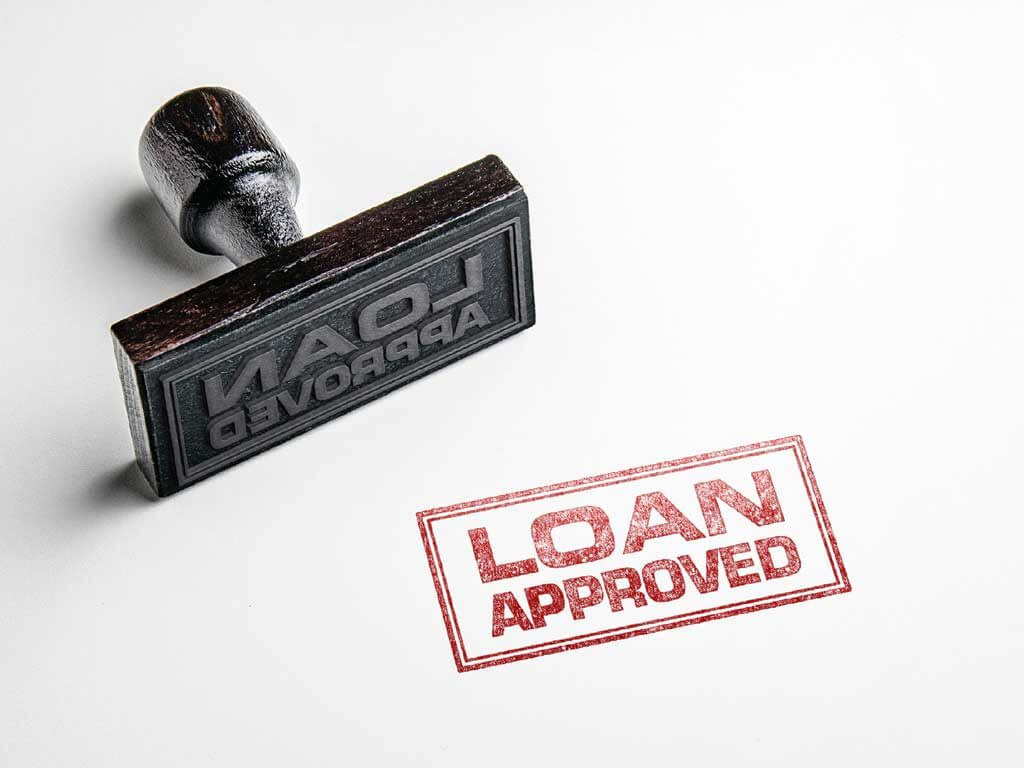To boost your loan approval chances, maintain a strong credit score and provide complete, accurate financial information. Ensure your debt-to-income ratio is low and your employment history is stable.
Securing a loan can be a critical step for financial growth, be it for purchasing a home, starting a business, or consolidating debt. Your creditworthiness plays a pivotal role in persuading lenders to greenlight your application. A solid credit history reassures lenders of your repayment capacity.
Equally important is presenting thorough documentation that reflects your financial stability. Lenders scrutinize your earnings, savings, and investment consistency to evaluate risk. A steady job and a regular income stream act as a testament to your financial reliability. Demonstrating fiscal responsibility by keeping your existing debts minimal can further tilt the scales in your favor. Adopting these strategies not only aligns with best financial practices but also enhances the likelihood of loan approval.
Introduction To Loan Approval
Understanding how to secure a loan is crucial. It’s the path to financing dreams. From homes to education, loans empower goals. Yet, many face denials. Grasping the approval process is key.
Common Reasons For Loan Denial
- Poor credit score: A red flag for lenders.
- High debt-to-income ratio: Signals risk to banks.
- Unstable employment history: Lenders seek stability.
- Incomplete application: Details matter in loan approval.
- Lack of collateral: Assets can secure loans.
Importance Of Loan Approval In Financial Planning
Loan approval is a financial milestone. It reflects creditworthiness. It’s essential for managing big expenses. Approved loans mean access to necessary funds. They enable long-term investments. Smart planning includes knowing approval strategies.

Credit: enterpriseleague.com
Credit Score Insights
Understanding your credit score is key to getting a loan approved. This part of our blog dives into Credit Score Insights. A good credit score opens many doors for borrowing.
Impact Of Credit Score On Loan Approval
A credit score acts like a report card for your finances. Banks look at it closely. A high score means you’re good with money. It makes banks more likely to say yes to your loan. A low score can make them say no.
Tips For Improving Your Credit Score
- Pay bills on time: Late payments hurt your score.
- Keep credit card balances low: High balances are bad.
- Don’t open new credit cards often: This can look risky.
- Check your credit report: Look for mistakes and fix them.
Improving your score takes time. Start now for a better future.
Debt-to-income Ratio Significance
Debt-to-Income Ratio (DTI) proves crucial in loan approval. Lenders assess DTI to gauge your financial health. A lower DTI often means a better chance of loan approval. It reflects a balance between debt and income.
Calculating Your Debt-to-income Ratio
Understanding your DTI is the first step. This ratio is a percentage. It compares monthly debt payments to gross monthly income. To calculate, sum up your monthly debts. Include credit card payments, loans, and mortgages. Then, divide by your monthly income before taxes. Multiply by 100 to get the percentage.
Strategies To Lower Your Debt-to-income Ratio
Improving your DTI can boost loan approval chances. Consider these strategies:
- Pay Down Debts: Focus on high-interest debts first.
- Increase Income: Look for ways to earn more. This could be through a side job or overtime.
- Avoid New Debt: Keep credit card use minimal. Don’t add new loans.
- Refinance: Lower payments by refinancing existing loans.
By applying these strategies, you can improve your DTI. A lower DTI opens doors to better loan terms. Remember, lenders favor responsible borrowers. Show them you manage debt well.
Employment Stability And Income Verification
Understanding Employment Stability and Income Verification is key to loan approval. Lenders look closely at these factors. They want to ensure borrowers can repay their loans. A stable job and verifiable income make a strong case for your creditworthiness. Let’s delve into the details of what lenders examine and how to prepare your documents.
How Lenders Evaluate Employment History
Lenders check your job stability to predict future income. A long tenure at your current job suggests reliability. Frequent job changes can raise red flags. They prefer candidates with steady employment. Below are the aspects lenders consider:
- Length of employment at the current job
- Past job history and duration at each position
- Job title and responsibilities
- Nature of employment: full-time, part-time, or contract
Preparing Your Income Documents For Review
Income verification is crucial. Lenders want proof of your earnings. Gather your documents early. Organize them for quick review. Use the following checklist:
| Document | Description | Purpose |
|---|---|---|
| Pay stubs | Recent earnings | Show current income |
| W-2 forms | Last year’s income | Confirm annual earnings |
| Tax returns | Past few years | Verify income history |
| Bank statements | Deposits and expenses | Reflect financial health |
Ensure all documents are up-to-date. Check for accuracy. Correct information builds trust. Lenders can process your application faster. This can improve your loan approval chances.
Collateral And Loan Security
Improving your loan approval chances means understanding Collateral and Loan Security. Lenders often require collateral. This is something valuable you own. It secures the loan. If you cannot pay back the loan, the lender can take this collateral.
Choosing The Right Collateral For Your Loan
Not all assets can serve as good collateral. Choosing the right one is key. The best collateral has high value and is easy to sell. Examples include:
- Real estate: Often considered the best collateral.
- Vehicles: Cars and trucks can also work.
- Savings accounts: Money you have saved up.
Think about what you own. Choose something lenders will value.
Understanding Lender’s Perspective On Collateral
Lenders look at collateral through a specific lens. They consider:
- Value: How much is your collateral worth?
- Liquidity: How quickly can it be sold?
- Risk: Is the value likely to go down?
Your goal is to offer something that meets these criteria. High value, easy to sell, and stable in price. This makes you a lower-risk borrower. Lower risk means a higher chance of loan approval.
The Role Of Co-signers
Getting loan approval can be tough. A co-signer might help. This person guarantees loan payments if you can’t make them. Let’s explore when to bring in a co-signer and what it means for them.
When To Consider A Co-signer
- Credit history: Is yours weak? A co-signer’s stronger credit can help.
- Income level: If your income is low, a co-signer can assure lenders.
- Debt-to-income ratio: A high ratio can be a red flag. A co-signer offers security.
- Large loans: For big amounts, lenders often want extra assurance.
Responsibilities And Risks For Co-signers
Co-signers promise to pay your loan if you fail. They face risks, too.
| Responsibility | Risk |
|---|---|
| Monthly payments | Credit damage |
| Legal accountability | Debt collection |
| Loan terms agreement | Personal relationship strain |
Remember, a co-signer’s credit is on the line. Late payments hurt them too. They should trust you. Discuss risks and responsibilities openly.
Smart Financial Moves
Smart financial moves can set the stage for loan approval. Lenders look at your finances. They want to see responsible habits. Start with these steps:
Reducing Existing Debt Before Applying
Less debt means better loan chances. Try these tips:
- Pay more than the minimum each month.
- Focus on high-interest debt first.
- Consider a debt consolidation loan if necessary.
Lower debt-to-income ratios impress lenders. They see you can manage debt well.
Budgeting For A Successful Loan Repayment
Create a budget. It shows you can repay the loan. Follow these steps:
- Review your income and expenses.
- Find areas to cut spending.
- Set aside money for loan repayment.
A solid budget reassures lenders. They want to know you can handle payments.
| Before Applying | After Approval |
|---|---|
| Reduce debt | Maintain budget |
| Check credit score | Set repayment funds |

Credit: bigblockrealty.com
Navigating The Loan Application Process
Approaching the loan application process requires careful planning. A well-prepared application increases approval odds. Understand the steps and avoid common pitfalls.
Common Mistakes To Avoid In Loan Applications
Avoidable errors can derail a loan application. Recognize these missteps to enhance approval chances:
- Incomplete information leads to delays or rejection.
- Inaccurate details question your credibility.
- Applying for too much raises concerns about repayment.
- Ignoring credit reports hides potential red flags.
- Overlooking terms and conditions can cause future problems.
How To Present A Strong Loan Application
Presenting a compelling application is key. Follow these steps:
- Review credit history for accuracy.
- Prepare all documents needed by the lender.
- Explain the purpose of the loan clearly.
- Show repayment plans to assure lenders.
- Consider a co-signer to strengthen the application.
Clear communication and complete, accurate information matter most. Lenders appreciate transparency and thoroughness.
Communicating With Lenders
Securing a loan requires more than filling out forms. Your interaction with lenders plays a crucial role. Let’s explore how to communicate effectively to improve your loan approval odds.
Effective Communication Techniques With Lenders
- Be transparent: Provide clear, accurate financial information.
- Respond promptly: Quick replies show responsibility and seriousness.
- Ask questions: Clarify doubts to understand loan requirements fully.
- Prepare documents: Organize all necessary paperwork beforehand.
- Maintain professionalism: Keep interactions respectful and formal.
What To Do If Your Loan Application Is Rejected
Don’t despair: Rejection isn’t the end. Take steps to understand and improve.
- Seek feedback: Ask the lender for reasons behind the rejection.
- Review credit report: Check for errors that may have influenced the decision.
- Improve credit score: Work on factors like payment history and debt levels.
- Consider other lenders: Research alternatives with different approval criteria.
- Reapply when ready: Address the issues and submit a stronger application.

Credit: www.sbalenders.com
Conclusion: Next Steps After Approval
Congratulations on your loan approval! Now, let’s focus on the future. With your loan in hand, it’s time to think about managing it wisely and planning ahead. Let’s dive into the next steps after approval to ensure a bright financial future.
Managing Your Loan Responsibly
First things first, managing your loan responsibly is key. Here are some tips:
- Set up automatic payments to never miss a due date.
- Review your loan terms again. Know your interest rate and repayment period.
- Keep a monthly budget. Track your spending and savings.
- If possible, make extra payments. This reduces your loan faster.
Planning For The Future Beyond The Loan
With your loan managed well, let’s plan for the future:
- Start an emergency fund. Aim for three to six months of expenses.
- Invest in your future. Consider retirement accounts like a 401(k) or IRA.
- Improve your credit score. Pay bills on time and reduce debt.
- Think long-term. Set financial goals for the next 5 to 10 years.
Frequently Asked Questions
What Affects My Loan Approval Odds?
Improving your credit score, reducing debt-to-income ratio, and providing comprehensive financial documentation can significantly enhance your chances of loan approval. It shows lenders you’re a responsible borrower.
How Can I Boost My Credit Score Quickly?
Pay bills on time, reduce outstanding debt, and avoid new credit inquiries to quickly improve your credit score. Each action helps demonstrate financial reliability to lenders.
Why Is My Debt-to-income Ratio Important?
Lenders evaluate your debt-to-income ratio to assess your ability to manage monthly payments. A lower ratio indicates better financial health, increasing your loan approval chances.
Does Employment Stability Affect Loan Approval?
Yes, steady employment indicates reliable income, which lenders favor when considering loan applications. It reflects your ability to maintain loan repayments over time.
Conclusion
Securing a loan doesn’t have to be daunting. By polishing your credit score, ensuring accuracy in your applications, and understanding lender requirements, you’re setting the stage for success. Remember, presenting a solid financial picture boosts your appeal to lenders. Start these steps today and watch your loan approval odds soar.
